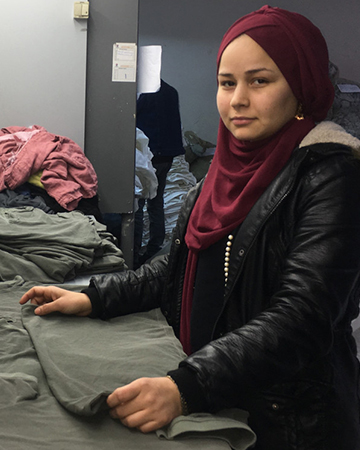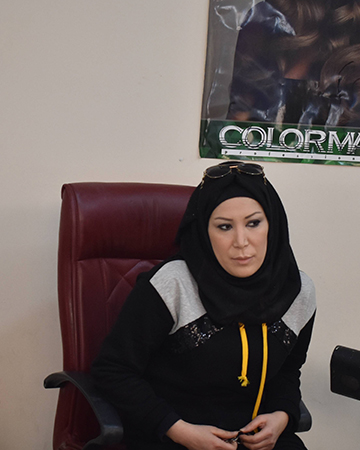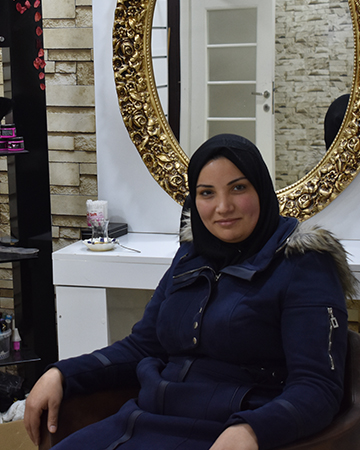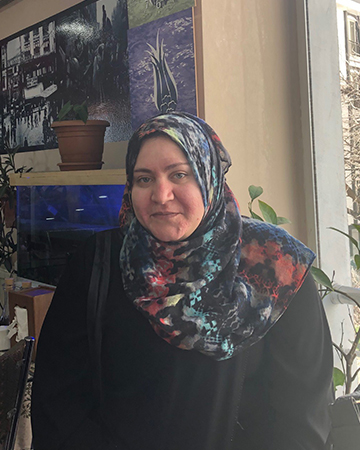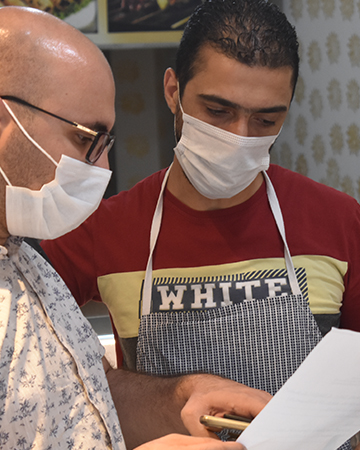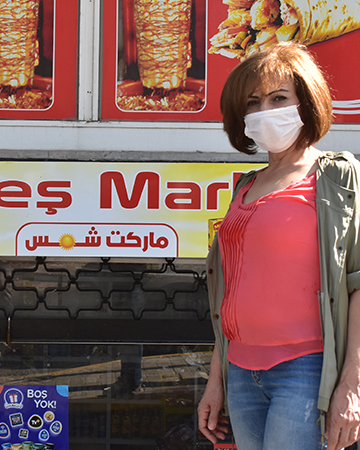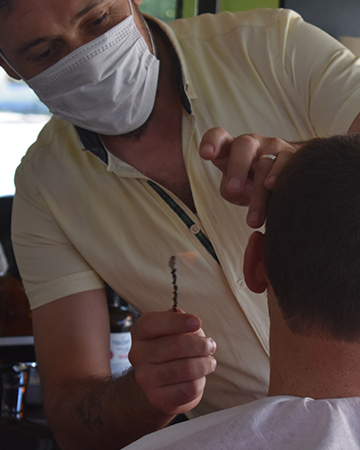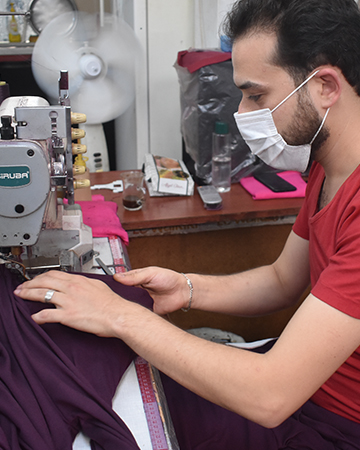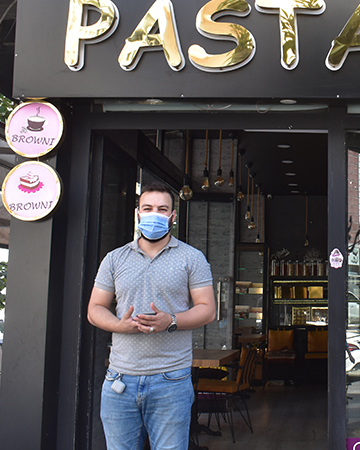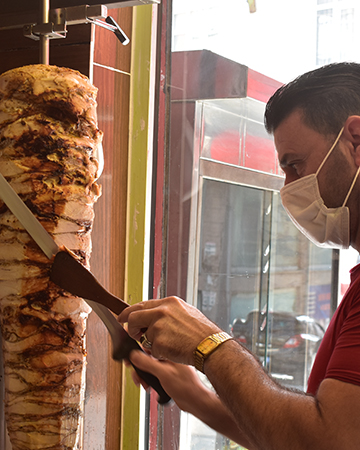Until 2015, she lived in Damascus; however, the Syrian civil war has also changed her life as millions of Syrians. In 2015, it became difficult to endure painful developments occurring in Syria; therefore, she decided to leave and immigrate to Turkey with her family. When they transit to Turkey, she had to leave her husband behind since he was under arrest, and she had her two daughters with. Shortly after their arrival, her husband was released with the support of one of the peace organizations, and he joined the family in Istanbul. After a while, one of her daughters immigrated to the Netherlands and the other one to Saudi Arabia.
Actually, the grocery shop was her former pilot husband’s initiative. Since he could not find a job in the field of his profession, Samira and her husband decided to start a grocery shop in Avcılar, where they accommodate. Unfortunately, her husband passed away a few months ago. After his leave, Samira heads the shop, although she does not have any previous experience in the grocery sector or any other sectors in Syria or in Turkey. Heading the shop is essential for both completing her husband’s path and earning her life. Now, she lives in Avcılar alone and runs the shop by oneself. As a first working experience, as well as a first-time entrepreneur, she did not have any knowledge regarding the rules and regulations that entrepreneurs obliged to comply with. Therefore, she did not complete any registrations, documents, or inventories, and this situation generated significant risk for the sustainability of her business, and her shop was open for the penalties following the inspections.
Prior to the “Şirketim Project,” she had knowledge about neither United Work nor GIZ. She heard about the project from her friend and paid a visit to the United Work office in Şişli, İstanbul, for obtaining more information, what necessary terms are to benefit from the project, and whether she is eligible to participate in the project. After the project team provided the necessary information and the road map of project processes, she has readily decided to start the formalization process of her shop with the support of the project.
When she participated in the project, she had not held any necessary registration. Starting from February 2020, the formalization process started; at the first step, she has become a taxpayer after registration to the tax office. Later, she registered to the Chamber of Handicraft, received E-Signature and KEP, as well as receiving POS machine and fire extinguishers. Then, her work permit application was completed with the help of the United Work field officers’. However, because of the measures to cope with the COVID-19 outbreak, the Directorate General of International Labor stopped their operations in practice. Therefore, approval of her work permit application has been delayed until the mid of July. Hence, the application for the municipality license was postponed until August. Nevertheless, her application for the license was swiftly reviewed by the Avcılar Municipality, and it has been approved. As a result, she has received all necessary legal papers to operate in line with Turkish law.
She is grateful for all project parties and appreciates their work. The project has given excellent results and has been an excellent experience for her. In the end, she possesses all necessary documents, registrations, and inventories to operate a fully legal business in Turkey. Unless the project in general and project staff supported all processes, she would not be able to manage procedures as formalization demands significant economic resources, knowledge on the field, and it is incredibly tiresome and challenging for the one who can not speak Turkish fluently.
Samira thinks that Turkey is a wonderful country, and she can foresee a future here; therefore, in the future, she plans to stay in Turkey. Nevertheless, she is well aware of her missings to integrate into Turkey fully: fluent Turkish and expanding business. Since she can not speak Turkish fluently, she does not have many Turkish people around, and improving her Turkish speaking skill would help her to meet with new Turkish people and having a more social life. As the Turkish market is significantly competitive, she is well aware that competing in the market requires expanding the business, holding various products in the shop, and serving more people. Thanks to the project, now she has power originated from the holding necessary legal registration, and instead of having a fear of being shut down, she can imagine expanding her business.


